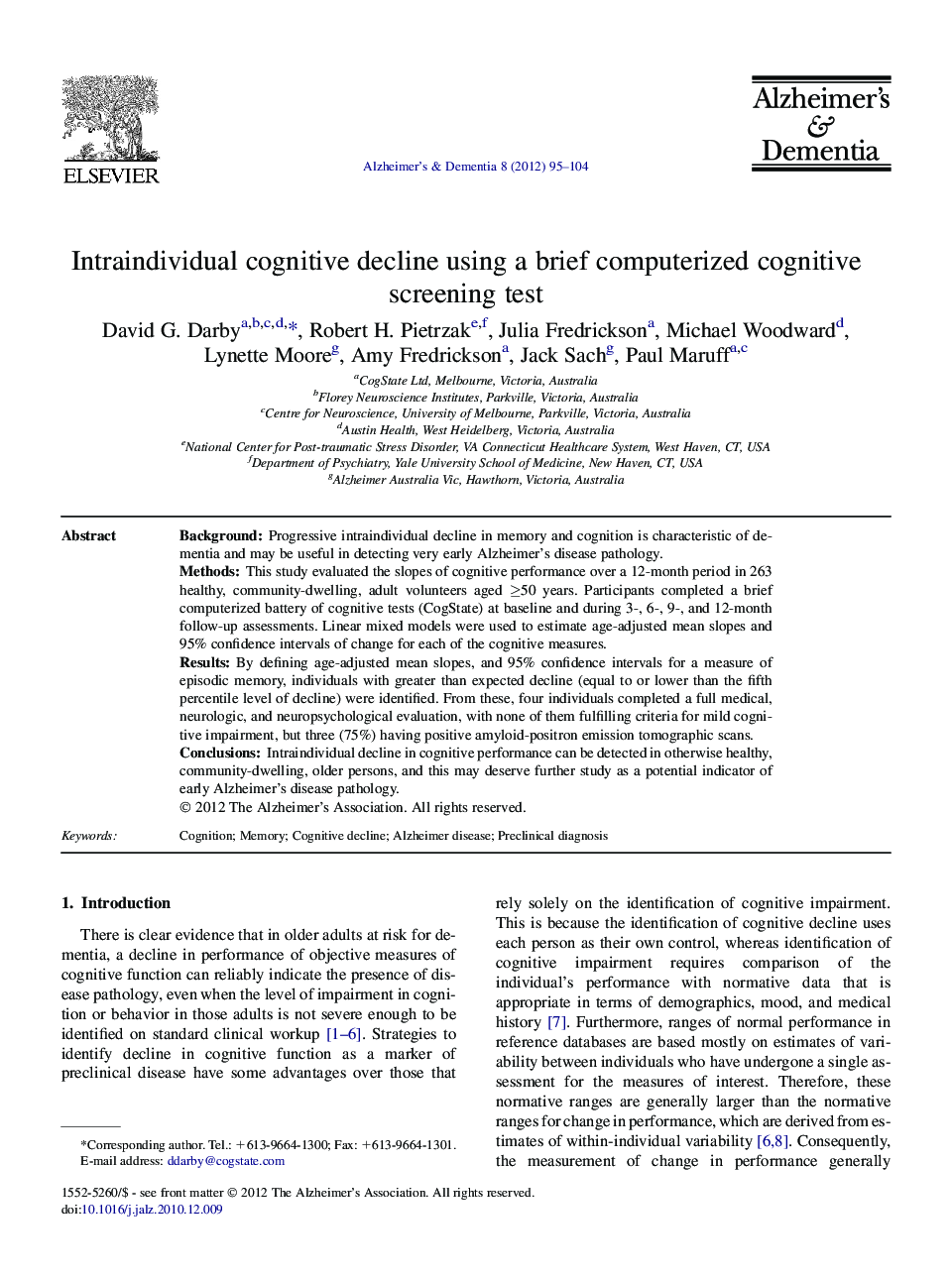| Article ID | Journal | Published Year | Pages | File Type |
|---|---|---|---|---|
| 5624631 | Alzheimer's & Dementia | 2012 | 10 Pages |
BackgroundProgressive intraindividual decline in memory and cognition is characteristic of dementia and may be useful in detecting very early Alzheimer's disease pathology.MethodsThis study evaluated the slopes of cognitive performance over a 12-month period in 263 healthy, community-dwelling, adult volunteers aged â¥50 years. Participants completed a brief computerized battery of cognitive tests (CogState) at baseline and during 3-, 6-, 9-, and 12-month follow-up assessments. Linear mixed models were used to estimate age-adjusted mean slopes and 95% confidence intervals of change for each of the cognitive measures.ResultsBy defining age-adjusted mean slopes, and 95% confidence intervals for a measure of episodic memory, individuals with greater than expected decline (equal to or lower than the fifth percentile level of decline) were identified. From these, four individuals completed a full medical, neurologic, and neuropsychological evaluation, with none of them fulfilling criteria for mild cognitive impairment, but three (75%) having positive amyloid-positron emission tomographic scans.ConclusionsIntraindividual decline in cognitive performance can be detected in otherwise healthy, community-dwelling, older persons, and this may deserve further study as a potential indicator of early Alzheimer's disease pathology.
